Amandla Ooko-Ombaka: Ask for forgiveness, not for permission
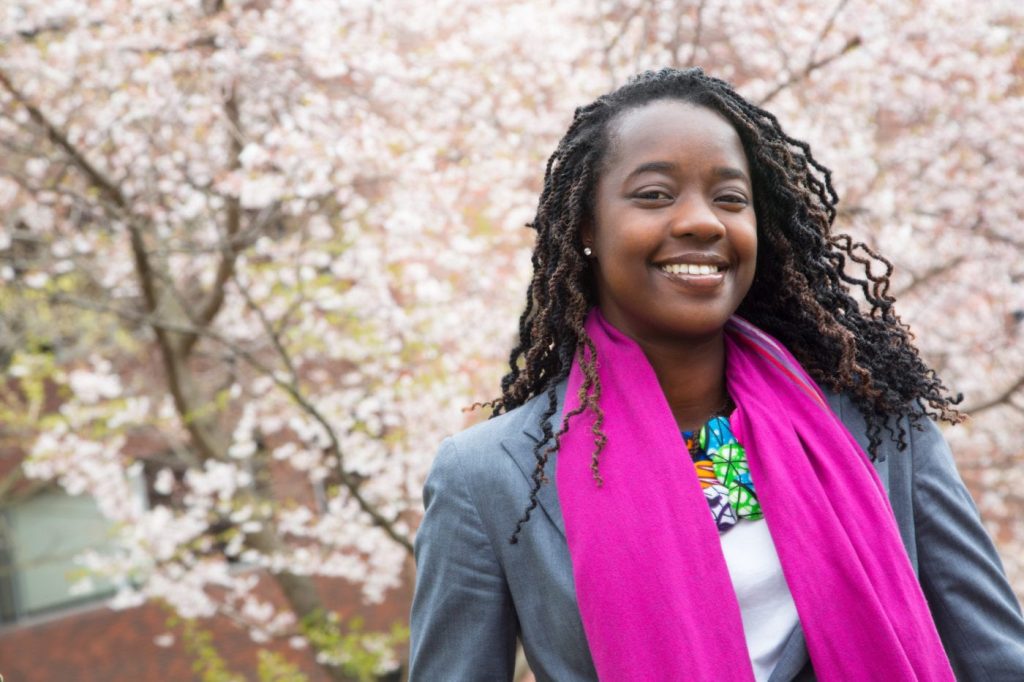
[bctt tweet=”We need people who can walk between the worlds of business and government @AmandlaOO” username=”SheLeadsAfrica”] When you’ve graduated from not one but two Ivy league schools it’s safe to say you are one highly educated individual. Amandla Ooko-Ombaka is not only book smart but has built her professional career with years of experience as a Management Consultant at McKinsey & Company, the world’s biggest consultancy firm. You’d think that would be it for her but not at all. Amandla’s ambition has her advising various non-profit boards as well as co-founding initiatives such as Second Story Africa and the Yale Leadership Institute. We can’t resist adding that she’s currently writing a biography of her late father, top Kenyan lawyer and politician, Oki Ooko-Ombaka. Our SLA contributor managed to secure a few minutes of her time to see if she does ever Our SLA contributor, Diana Odero managed to secure a few minutes of Amandla’s time to see if she does ever catches a break and to find out what motivates her. How does one juggle the various hats you wear and do it so well? I think the notion of daily balance is false so I don’t try and achieve balance on a day to day basis. It’s impossible with the job I do, where sometimes I work 17hr days, to say that I will go to the gym today, I will cook today, I will see my friends today…it’s just not possible. So I think the first step was allowing myself to think about balance over a period of time and that also gives me time to evaluate. Every two months I try to live a balanced life. Meaning in those two months, there’s good periods of working out, of sleep, of seeing my family and of work. [bctt tweet=”The notion of daily balance is false so @AmandlaOO doesn’t try to achieve it on a daily basis” username=”SheLeadsAfrica”] The second step was learning how to say no, which I think has been a much harder lesson for me to learn. I find it very hard to say no especially to people I care about. So, I sort of tell the person asking me to do this or the other; that this is a really cool opportunity and I’m grateful but have to say no in the hope that this opportunity will be there again in future. Once I remove this notion that I’m not the only one who can do this thing, it makes it easier to say no. On top of your quite extensive and busy schedule, you are also writing a book. Tell us more about it and why you felt a need to do this now. The book is a biography of my father. It has been a passion project for the past 10 years. My siblings and I had constantly talked about doing it. I finally took some time off between graduating last year and going back to work to put some real time into the book. The process revealed itself in many different ways one being the more we work on this, the more it becomes our own story. We’re discovering who our father was and the contributions he gave to this country and to this world. I realize we are in a very unique position as his children to write about our perspective of him. We are trying to juggle telling his story and telling ours because his story has so much merit to stand on its own but our story is also valid and legitimate. The timing of this could not be more perfect as I finally moved home after living abroad for a while and I would love to get engaged in politics at some point. In many ways, my political identity is very much tied to my father’s political identity. So I need to understand him, who he was in his early years of politics and what formulated his opinions in order for me to make my own opinions. [bctt tweet=”Amandla Ooko-Ombaka’s political identity is very much tied to her father’s legacy” username=”SheLeadsAfrica”] You recently completed a dual Masters degree at Harvard, something not many achieve – what motivated you to pursue the two courses – an MBA and MPA/ID (International Development), simultaneously? I chose the dual degree because it was a reflection of who I am as a person. Some people may think it’s a lack of focus but my heart is very much in the public sector and my mind is very much in the private sector and I’ve just stopped fighting that. I’ve embraced who I am and my heart and my mind need different avenues to be fulfilled and to work optimally. Harvard business school catered to my mind and the public sector school while Kennedy catered to my heart. [bctt tweet=”My heart is in the public sector & my mind is in the private sector – Amandla Ooko-Ombaka” username=”SheLeadsAfrica”] At a more fundamental level, I think that we need more multidisciplinary thinkers in the world we live in. Things are exceedingly complex and we need the sectors to work together. I don’t think business and government should be the same thing but we need people who can walk between the two worlds. Harvard doesn’t want you to be half a business person and half a public sector person. You should be able to completely hold your own in the two separate schools which I think is really important. I’m multidisciplinary by nature and I think there’s a role for people who think like me. A lot of the things I care about like power and utilities will not be funded by the government. The private sector will fund a lot of these projects, but they need the government to eventually take over asset ownership, right of passage etc. These two disciplines need each other so much more than we like to talk about. It is my life’s mission to bring them closer together. The joint
Diana Odero: I have had years of practice travelling on a budget
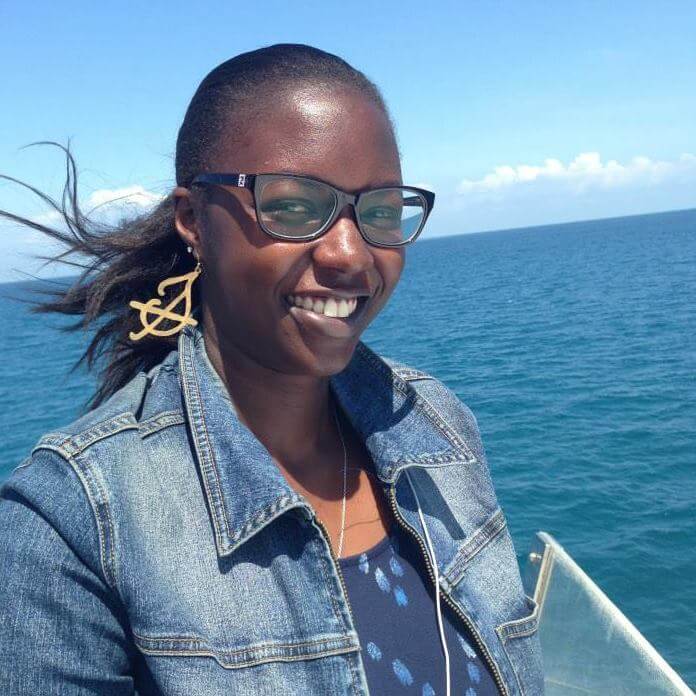
[bctt tweet=”Patience, an open mind and other skills you need to master the art of budget travel” username=”SheLeadsAfrica”] Diane Odero counts being a journalist (and contributor to SLA) among her growing list of accomplishments. She is also an avid travel lover and is able to do even though she was a student until just recently. For Diana, travel is an enriching experience and an opportunity for African women to get out there and see the world for what it actually is and not for what we think we know about the place. Travel is more than just time to re-energize, reboot, press the reset button on life, it also helps bring in some Chi back into your life. Diana has only ever travelled on her own and has found that travel can be therapeutic. Let’s talk finances, how do you find the budget to travel so widely? I save constantly! I’m just like every other young woman who likes to shop, eat out and have a pamper day once in a while but then I also love to travel. And if you know anything about travel fares, they sure don’t come cheap. So I usually compromise on most things that I would like but don’t necessarily need. I also make sure to put some money away with every income earned to keep up the saving habit. Also, I started travelling a lot while I was quite young, so I knew early on that I wanted to study abroad at some point and I was fortunate enough to do it twice for undergrad and for my Masters. I also signed up for various sky miles programs years ago, not knowing how beneficial they would be in the long run. The miles started accumulating a lot while I was in college and before I fully understood the magic of sky miles. Now those miles have come in handy in the past two years and with more flights made, more miles are earned —it’s a beautiful cycle. Lastly, I have mastered the art of finding really cheap flights. Would you believe me if I told you that my direct return flight to Italy from London only cost me £100 on British Airways? Insane. I couldn’t believe it myself, but booked it instantly before it disappeared. (Fares like those on such airlines don’t come by every day). I’ve had years of practice since my college days with my friend Fiona who would scour the web with me at wee hours of the night (best time to find flights, also best days are Tuesday & Thursday in my experience). I also realized most of the travel packages out there put out a really good deal if you research very carefully. What about visas? Have you faced any difficult travelling within or outside the continent as a Kenyan citizen? The one place I have had minor issues was in the US where the Kenyan passport isn’t as valued as others. My visa was never an issue but the way I was treated compared to other people with passports from non-African countries, was really disappointing. Nonetheless, America is still a second home to me and I know as more people of colour travel and even more Africans get out there, these unnecessary stereotypical discriminations will stop in due time. In terms of visas, the UK visa was quite the struggle to obtain particularly for school. It’s not an impossible task, they just make it ultra difficult so you need to have a lot of patience when travelling to the UK. One single step missed in the application process and you’ll be denied one as soon as your interview is done. Having applied for various visas before, I already knew what to prepare for and the dos and don’ts of the process; the lengthy process was what I had not expected at all. Within the continent, I haven’t had any problems with travel and visas so far. What five skills does every African travel lover need? Why these skills in particular? Time management skills I have never missed a flight and I’ve only ever been close to missing one once in my life. That was because I had a 7:30am flight and woke up at 5 (the time I was meant to be at the airport). I literally got there as they were closing the gate; I had to beg them to let me in because I was rushing to school to make it in time for an exam. Why I woke up late you may ask? I was up the night before until 4am —silly, I know but I really thought I would hear the alarm clock. Be very time conscious so as to never miss flights because rescheduling is such a pain and costs so much as well. Patience I’m usually a very patient person but some things can drive you insane. Traveling a lot has made me appreciate the art of being patient with people everywhere because not all places work the same as where you are familiar. You have to be patient enough to scope out the environment around you, to learn how things work instead of forcing your ways upon someone who has no idea what you mean or are doing. You need to be patient with the visa processes while going through security and customs at different ports, and you need to be patient when flights/trains get delayed over and over again. Keeping calm is much better than blowing a fuse believe me, you’ll get to your destination eventually. An open mind It’s really the only way you will enjoy anywhere you travel to including the traveling process as well. The world is a huge ball of diversity and with so many cultures living in it, no one person is the same so keep an open mind wherever you go to embrace what all these different places and people have to offer. A lot of Africans are very rigid and very
Anyiko Owoko: It starts with you

[bctt tweet=”Anyiko Owoko is a writer and PR maven who has worked with many Kenyan & African stars” username=”SheLeadsAfrica”] A celebrity publicist, a Public Relations maven, journalist, blogger and all round music and entertainment aficionado -Anyiko Owoko is the perfect definition of more than a triple threat. The young connoisseur is the publicist to award winning East African music group; Sauti Sol. Starting out as their friend and assistant, Anyiko has risen to media success thanks to her work with the boy band. Anyiko also works with many other talented artists on the continent and beyond who have seen her prowess as an influential communicator and brand strategist. Now she intends to expand her growing PR company –Anyiko PR and let SLA contributor, Diana Odero in on her journey to where she is now and why she is fuelled by creative people. You have the incredible role of being Sauti Sol’s publicist. How did this come about? I have always been their friend to begin with. I was initially friends with Chimano in particular, who I met in 2006 at Alliance Francaise where I was studying French. Funny thing is, we weren’t even in the same class so I don’t really recall how we became friends. Chimano would always tell me about his friends and him singing in high school and now that they were done, they were thinking of starting a music group. He wanted my opinion on that. So I sort of became their advisor from back in the day and I encouraged them to take on the music group idea. Chimano and I joined the choir at Alliance and we really liked it but Chimano felt that he needed his friend (from high school) to join in as well. We both convinced the choirmaster to allow his friend -Bien Baraza to join, even though non-students weren’t allowed in the choir. Later on Savara and Polycarp, Chimano’s other friends were brought in and they were a full singing group in a choir. After we completed the French program, we enrolled into University and surprisingly Chimano and I ended up in the same school, in the same course and in the same class. That’s really how it all started and as for me, I’ve always loved writing and communicating. As a friend, that was a great quality I had that was able to help them get their group off the ground. I have been their road manager, an assistant, I got them onto social media and after several years, they realized that I was the main person doing their publicity. I knew they would become big stars from way back in the day and so I did all I could to secure their brand and maintain their presence in the music industry. They of course now have a bigger team; I even have my own assistant as well, so at least we have a lot more help than we did when it was just the boys and I. Did you always want to get into the public relations field? No, I never saw myself doing this kind of work. PR kind of just found me because of the work I was doing with Sauti Sol. My plan had always been to get into writing and become a journalist. PR is part of communications so it still lies in my preferred field but I guess you can say I ended up specializing in it. [bctt tweet=”Anyiko Owoko: PR kind of found me because of the work I was doing with Sauti Sol” username=”SheLeadsAfrica”] I wanted to do broadcast journalism, which I have been doing actually; I’ve been working in TV for the past seven years. I still write though, I write for DStv, for the Daily Nation, I run my own blog and I also write for the Coke Studio website. So I’m still doing what I always wanted to do and I’m grateful to have found something else that I can do that contributes to the industry. How did you know that it was time to leave the employee life and become your own boss? I recently stopped working in TV this past September because I wanted something new and more challenging and needed a break from my broadcast career. About three years ago, I started feeling this way, I always wanted to leave but it was a bitter-sweet decision to make as that was my first official paying job. I was still in college when I got that job and for a journalism student, landing a job hosting an entertainment show in a national network was and still is quite a big deal. It was a really great show with great content that you don’t get much of nowadays in Kenya. I knew I wanted to leave when I realized I wasn’t learning anything new. People would come on the show and I would train them on hosting, reporting, scriptwriting etc. and no one was teaching me anything new. The producer of the show who discovered me had already left the network and I was now answering to his juniors even though I had more creative experience than they did. In addition, things were really changing fast in the world of media, including social media . The show was stagnant and I started interviewing the same artists all over again due to lack of content so it was getting too monotonous for me. [bctt tweet=”I knew I wanted to leave my job when I realized I wasn’t learning anything new – Anyiko Owoko” username=”SheLeadsAfrica”] Now I have my own column in Yummy Magazine where I interview all kinds of celebrities discussing food and lifestyle, which is something I never thought I would do. I started my own company and all this has been the breathe of fresh air that I really needed. As a celebrity publicist now, can you tell us which artist has been the most pleasant to work with and which interview has been the
Abigail Arunga: Freelance writing is sustainable, everyone needs writers
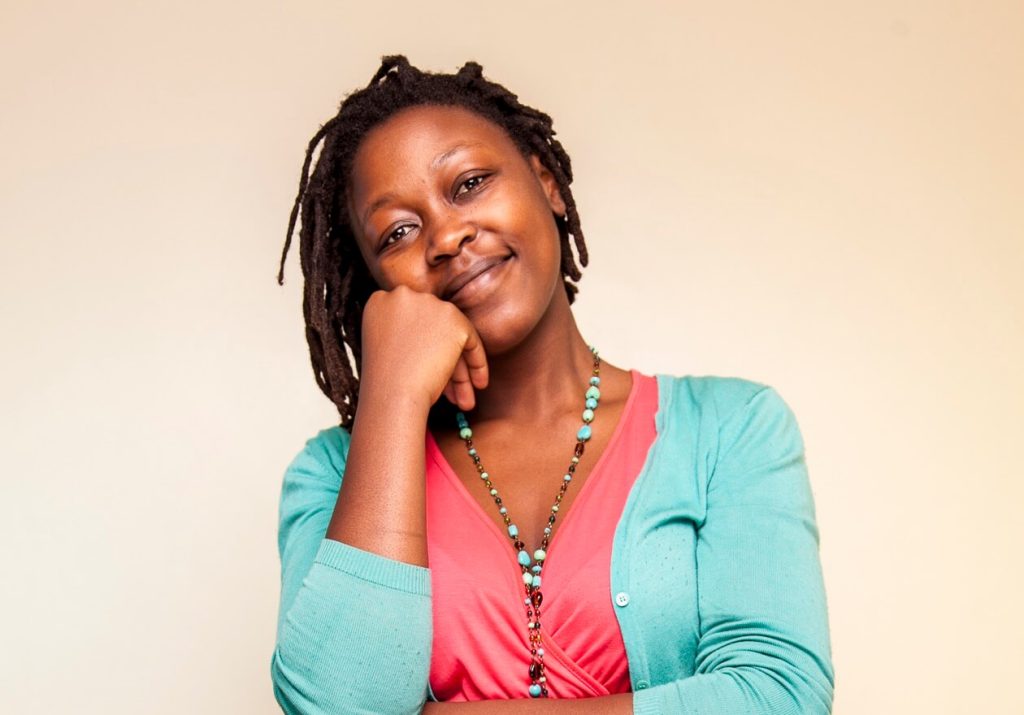
[bctt tweet=”Abigail Arunga quit her job for more sleep and less money as a freelance writer” username=”SheLeadsAfrica”] Abigail Arunga used to be the Digital Editor for Zuqka.com before she subscribed to the ideal of happiness at work and quit her job for more sleep and less money. Before that and other subsequent mutinies, she worked as a contributor for several local Kenyan magazines such as Home and Living East Africa, DRUM and Saturday Magazine (Nation). Now, Abigail is a 28-year-old (yeah, she can’t believe it either) writer, blogger, scriptwriter and committed lover of sleep. She is the author of Akello and a side of raunch, both (only slightly) sensual poetry collections, is trying to avoid questions about when the next volume is coming. Abigail was also a scriptwriter for the award-winning soap opera “Lies that Bind” and continues to write for TV with shows such as “How to Find A Husband” and “Majaribu”. She began her writing career as an intern for Storymoja Publishers and is a 2011 honours graduate of USIU (don’t forget that. She thinks it is very important, mostly because she was surprised). Oh, and duh, she’s a feminist –who isn’t? Here, Abigail shares her expert advice on surviving the struggle of being a freelance writer. Did you always set out to be a freelance writer? That was not the plan! Employment was kind of the plan. Until I got employed and realized I was not only a terrible employee, but I also hated having to be employed. Not because of the sweet salary, but because I hated having to answer to something outside of myself —no matter how nice that something was to me. Small decisions, by the way, like not being able to stay home on my period, or having to ask to not come to work? It felt like a cage. What’s a typical day like for you? Wake up at about 10 or 11 am, noon or 1 pm if I have been working past 3 am. I will get up, work on my social media for about an hour or two, then get up and have breakfast (brunch!), watch something, read something, probably leave the house —if not, I will start working. If I leave and come back, probably late, from whatever —an event I am covering, a film I am reviewing, whatever it is— then I will start working when I get home. If I have eaten out, I’ll start immediately —if not, I’ll cook. Then TV, then sleep. The only thing that is constant though, in that list, is what time I wake up, hehe. [bctt tweet=”To be a successful freelance writer you have to be willing to do the work required” username=”SheLeadsAfrica”] What will you say to people who say one can’t make money as a freelance writer? I haven’t lived at home for five years, so that’s a lie. You just have to be willing to do the large amount of work required to sustain yourself and have a hard-line stance on when people pay you —because self-motivation and chasing cheques are probably the hardest parts. Can you talk about rates? How did you go about setting rates for your work? Rates depend, for me, on who is buying. Every time. I have my constant contracts that I have been working for about four years —those don’t change much. Friends shouldn’t get different rates, I know, but they do. Everyone else? My minimum is about 5 bob a word. Or I charge per piece of work —for example, per script, as opposed to the number of words. For my television scripts, I ask for about KES15000 per script. Which I am told is below industry rate…hmmm…new year, new rates? The reason why sometimes rates are so fluid with me is, honestly, sometimes, you are broke as hell and have to take what you get. Then you get on a little bit, and you’re like no, I deserve more! Which is all fine and dandy, until you hit a patch and you go back to cheap. Especially at the beginning of a freelance career. It can be very hard to not only know your worth but stick to your guns. I would say start with what you want and stick to what you want, without having to go back –and with a backup plan. Savings, or Mshwari, hehe. If your work is good, they will pay. If they don’t, you will get better, or pivot. You will do what you have to do. [bctt tweet=”Abigail Arunga: At the beginning of a freelance career, it can be very hard to know your worth” username=”SheLeadsAfrica”] Would you say freelance writing is a sustainable career choice? Of course. Especially if you are thinking out of the box. You do realize that everything needs writers? All businesses need stuff written. They need newsletters. Copy for brochures. Memos. Who writes this stuff? Articles. Magazines. Menus…everything. So sometimes they have in-house writers. Many don’t. Figure out what you want to write and write. Write hard. It is sustainable because everyone needs writers. What should anyone looking to become a freelance writer know before embarking on this path? Ask for half of the money before you do any work for anyone. People are not nice in this town —in this world. Don’t feel bad if the jobs take a while to get there —they’ll get there. Just keep going. You want to be a writer? Then write. Ready to share expert advice on your industry based on your experience? Tell us about it here.
Michelle Orlendo: Helping women appreciate African-textured hair with the Nywele Chronicles
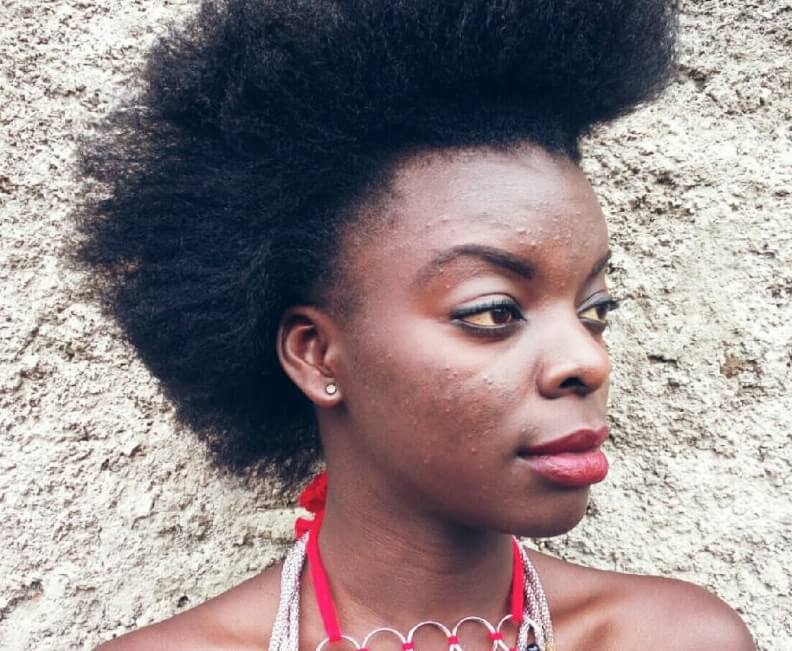
[bctt tweet=”There is no harm in trying. Do not be afraid of failure, keep trying – Michelle Orlendo” username=”SheLeadsAfrica”] Natural hair, especially 4c textured hair, styled in a simple yet luxuriant look has been frowned upon by many. We often hear people classifying it as an unkempt and unruly look. However, Michelle Orlendo, is changing that perception daily one head at a time. Michelle is seeing to it that as many women in Kenya transition and embrace the beautiful and natural look as possible. Tired of chemically and heat treating her hair, which had lost volume, and inspired by the fact that African women were rocking their natural hair and slaying, the 23-year-old Michelle woman embarked on a journey of being a naturalista. The big chop Michelle Orlendo went for the big chop in July 2015, to the chagrin of many. She had shoulder-length, flowing heat-treated hair, an ideal look for many. As she began her journey slightly over a year ago (on 25th November, 2015), Michelle vowed to involve other women. She especially targeted young girls who would aspire to go natural but lacked the motivation and/or guidance. The journey ahead was full of trials, criticism, moments of almost giving up and a lot of doubts. However, it began with the opening of a Facebook page dubbed “Nywele Chronicles”, (Nywele is hair in Swahili). Michelle invited her friends to like the page initially. Only a few liked it, but the fan base gradually picked up through her consistency in giving what the audience wants. The Nywele effect A few months after her big chop, Michelle’s hair grew tremendously and ladies started asking questions. Michelle describes her hair as a reflection of her soul, and her hair was glossy and really kinky —in every sense of African amazing kinky. Questions came pouring in, people wanted to know what Michelle applies, how she styles it and protective styles they could use. With every question came the realisation that she could start a blog. Michelle thought to move away from only posting pictures on her social media platforms, but also write reviews of the products she used and how she styled her hair. From it’s inception, Nywele Chronicles gained a huge amount of followers who genuinely wanted a smooth transition from chemically treated hair to natural hair. Michelle became a hair consultant of some sort. Ladies would approach her to feel her hair and request her to cater to theirs the same way. Her glorious mane turned heads in school, Moi University, as people started calling her by her page’s name, Nywele Chronicles. “It has not been an easy journey to keep my focus on updating my social media pages, getting the time to do tutorials amongst other things.” Michelle says. “I’d have given up were it not for my passion and the strong support system I have.” This is how Michelle Orlendo persevered through the challenges to get to the one year mark. Aiming to encourage women to love their natural hair Michelle hopes to have her own products that cater to African-textured hair in the market, in a span of less than 5 years. With a salon to her name and a degree in Trichology —a branch of dermatology that deals with the scientific study of the health of hair and scalp— a consultancy will come in handy. With her experience, Michelle always looks at people’s hair and analyses it even before touching. She can easily tell hair that lacks moisture, too much heat treatment and malnourished hair. [bctt tweet=”Michelle Orlendo stays motivated by the fact that Nywele Chronicles will soon be a business” username=”SheLeadsAfrica”] Now in her final year studying Actuarial Science, Michelle Orlendo stays motivated by the fact that she will soon be turning Nywele Chronicles into a business. Aiming to encourage women to love their natural hair is her tag line. This is being actualised as Michelle is helping transitioning women to wear their natural look, and feel glamorous while at it, through Nywele Chronicles. She further adds that the initiative has really helped build her confidence and esteem. Going natural has made Michelle appreciate herself holistically and opened a new window through which she views herself. To everyone that wants to venture in the formally perceived ‘not-so ideal’ courses and activities Michelle Orlendo says; “If you feel like the timing is right to do anything that you want to do, go ahead and do it. Forget what people will say and do it. There is no harm in trying. Do not be afraid of failure, keep trying.” Want to see women you know featured on SLA? Tell us what amazing things women are doing in your communities here.
Ruth Mwanzia: I grew up in a region that faced many challenges with water
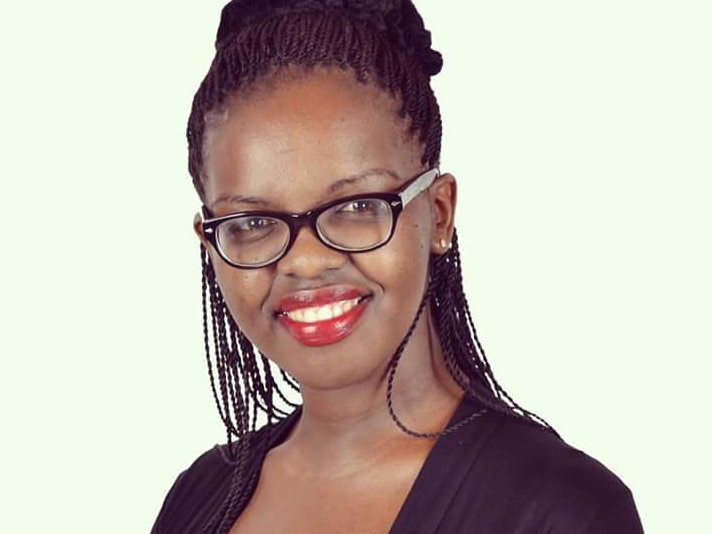
[bctt tweet=”Ruth Mwanzia started @KoolaWaters to address water challenges” username=”SheLeadsAfrica”] Ruth Mwanzia is making it rain…well not literally. She grew up in Kitui, a semi-arid region in Kenya that often faces water scarcity and drought. Being a #MotherlandMogul in the making, Ruth decided to start her own water bottling company, Koola waters. Koola waters manufactures, distributes, treats and packages water. As a child of her community, Ruth is also involved in several corporate social responsibility (CSR) ventures in Kitui, as well as other parts of Kenya. Read on to learn what it takes to enter the water manufacturing business. Why did you decide to enter a business in manufacturing, distribution, treatment and packaging of drinking water? I wanted to make a difference in my community. Having grown up in Kitui, a region in Kenya that experiences semi-arid type of climate, we faced many challenges to do with water; water scarcity, drought and water shortages. After I graduated from campus, I asked myself what I could do to address this situation. Thus, Koola waters was born. Koola is a company that specializes in manufacturing, distribution, treatment and packaging of pure drinking water. Through Koola waters, we supply water to eight regions in Kenya including Kitui. What do you think of the water manufacturing industry in Kenya? What makes Koola waters stand out from the rest? It’s a competitive field and it’s a fast-growing industry. Why we stand out, first all our water is very sweet because its UV treated and well micro-filtered. Koola water goes through seven stages of filtration. Second, we care about the community and we are involved in many CSR activities. Third is our unique packaging, the customer and the community are always at our heart. How are you making impact in the community? We are making an impact in the community by engaging in various community activities to give back. We do lots of tree planting activities in Kitui, mentorship activities across different universities in Kenya, work with several Kenyan charities and we also support a local football team in Kenya. What particular challenges have you found offering employment to other young people? Lack of experience, but through regular training they are able to gain the experience for the job. Lack of stability: Many of the young employees have no clear vision of their careers. They join a company and once they find another good opportunity they will switch. This is always a huge loss to the organization. Discipline issues: Not all, but most of them, are unaware of work culture environment. They do not turn up on time, they do not strictly follow the HR rules. Many of young employees try to take leaves more than they are provided with. This is a question of discipline. Yet above all this, I love working with young people. Through mentorship, education and training, they are able to gain the skills required for the job What different marketing strategies have you used to promote Koola waters? Koola waters employ different marketing strategies; We work with main stream media, where we do features so people are able to know what we do We also do digital marketing, we are very active in social media Finally, we engage in content marketing and brand publishing [bctt tweet=”Ruth Mwanzia – The water manufacturing industry in Kenya is competitive and fast-growing” username=”SheLeadsAfrica”] Are there any challenges unique to your industry that you’ve discovered? Small-scale bottled water companies are often confronted with price wars that erode profit margins and at times even lead to losses. There is also the effect from regulatory-related constraints. For example, increases in the import duty of plastic pellets and the ongoing hot topic of the regulation on the management of water resources. Cost structure, which is dominated by the cost of plastic packaging and distribution costs. This has made our industry quite sensitive to fluctuations in the exchange rate. The industry is heavily reliant on imported plastic, raw materials and gasoline. Competition from well established brands in the market. If you’d like to share your story with She Leads Africa, let us know more about you and your story here.
Adelle Onyango: Live your best life

[bctt tweet=”@ADELLEO is the true definition of keeping it real, don’t @ us” username=”SheLeadsAfrica”] When it comes to keeping it real, Adelle Onyango is the true definition of just that. A successful radio personality, a poet, an actress, a social activist and all round advocate for youth and women empowerment, this young Kenyan is a woman of many talents but manages to remain her true self despite the fame. Adelle’s humble yet infectious nature has millions tuned in everyday and she has used this platform to give a voice to the voiceless, initiating projects targeting the youth who she believes have the power to change the world. Get a glimpse of life according to Adelle Onyango in the interview below, conducted by SLA contributor, Diana Odero. Why did you decide to join radio? Was it always something you wanted to do? I guess it was subconsciously. I’d record myself speaking over my sister’s cassettes. I studied journalism but my concentration was public relations. I really though that’s what I wanted to do but since day 1 of being on radio, I think I’ve found my home. In light of your new position as host of the Breakfast Show on Kiss FM Nairobi, how did you prepare for such an important yet challenging role? What lessons can you share with us on taking risks? Well I didn’t know I was preparing for it, but all my days in radio have prepared me for this. Even the challenges I thought were unnecessary have proved necessary now. I think we should all strive to live our best lives and take each opportunity that lands on your path. Because that’s how you learn and that’s how you grow. [bctt tweet=”Adelle Onyango – I think we should all strive to live our best lives” username=”SheLeadsAfrica”] As a radio presenter and social media influencer, you have made your name into a full blown brand – #TeamAdelle. How do you keep your audience engaged and ensure the growth of your brand? This is going to sound cliché but honestly I keep it REAL. There’s no real formula to being you. You just BE YOU. I meet up with members of team Adelle and we even have leaders and various departments. I’m passionate about the youth and getting them to work with each other in changing the world and so I try and work with them towards that. What does team Adelle have to look forward to in the coming new year? Intimate mentorship sessions and a brilliant fashion collaboration that I’m so excited about! [bctt tweet=”@ADELLEO – There’s no real formula to being you. You just BE YOU. ” username=”SheLeadsAfrica”] You recently launched the ProjectSHE campaign. Can you tell us about it and what inspired you to start this movement? I wanted to share stories of conquests. So many times, we get stuck in an abyss of negativity thinking the issues we’re battling are unique to us. But when you hear that someone faced the same issue and overcame it –it’s inspiring! So, my team and I gathered stories of conquests from Kenya, France, Australia, South Africa and shared them with the world online. Your journey to where you are now has not been a walk in the park but you have managed to come out stronger and better. How do you find strength to face difficult days and/or overcome difficult situations? After losing my mother, I am very aware of how fleeting life is. So, everyday I just want to live life to the fullest but also live my best life. That motivates me. What has been the proudest moment of your career? Honestly, I do not think I’ve achieved half of what I want to achieve in life. When that happens I will have a proudest moment. Until then, I’ll keep mastering my craft. [bctt tweet=”@ADELLEO – I do not think I’ve achieved half of what I want to achieve in life” username=”SheLeadsAfrica”] What are 3 things about you that most people wouldn’t know? I’m extremely shy –quite the introvert really. I love baking. My fave pastime ever is reading and analyzing poetry. A little strange but that’s me! Lastly, what mantra do you live by? Live your best life. Want to see women you know featured on SLA? Tell us what amazing things women are doing in your communities here.
Michelle Ntalami: Entrepreneurs have a fire
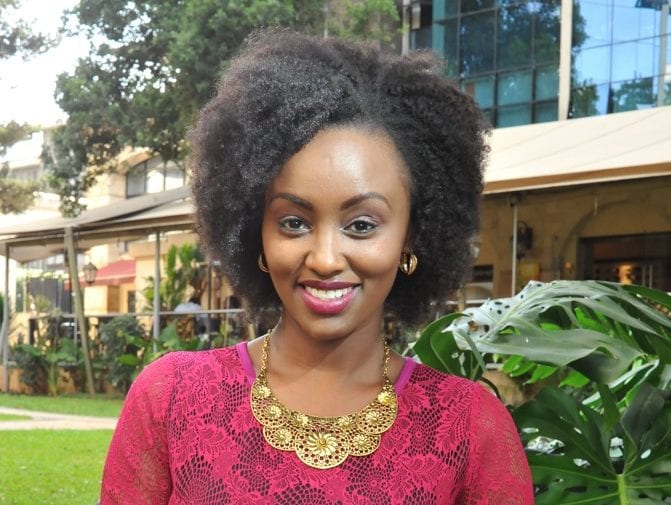
[bctt tweet=”Cosmetic scientists told @MichelleNtalami that the African natural hair market isn’t quite ready” username=”SheLeadsAfrica”] Michelle Ntalami, a strategic brand and marketing expert, is the founder of Marini Naturals, Kenya’s first 100% organic, natural hair care line. With her wealth of branding and design knowledge, she has conceptualised and designed the Marini Naturals brand, from its name to its logo, colours, scents, packaging, label design, brand plan and marketing strategy. Here, Michelle discusses her fruitful journey to creating Marini Naturals. Marini is Swahili for ‘beautiful’ or ‘attractive’. What was your inspiration behind the name Marini Naturals? From the get-go, I wanted the name to mean “gorgeous” or “naturally beautiful,” just like women are intended to be! I also wanted something very African-sounding and easy on the tongue and mind. So I Googled how many other ways to say “beautiful” or “charming” in any African language. I didn’t mind the language, so long as it was African. And right there was the name “Marini” which is Swahili for the same. I instantly fell in love with it. Marini Naturals is Kenyan’s first 100% natural hair product company for natural hair. How did you find and convince the scientists and other experts who helped turn your dream into a reality? In fact, when I approached a few cosmetic scientists, most told me that the natural hair and skin market is not quite ready in Africa. They advised me to go for generic, synthetic products which “sell more and have higher margins.” But I had a set focus and vision in mind, and to me it was producing 100% natural products with no compromise on quality. However, a few formulators and one factory believed and shared in my vision, and the rest followed. We worked together to make Marini a reality. Soon after our first batch hit the markets and flew off the shelves, most of the ones who had convinced me otherwise expressed interest in working with us. How do you strike a balance between running your branding company, Brandvine Group, and Marini Naturals simultaneously? I have got a team of 10 employees who work on both Marini Naturals and Brandvine Group. Brandvine is mainly run by my partner Niyati Patel, with her team of 8 who manage it very efficiently. I do not want to spread myself too thin, therefore my focus now is more on Marini Naturals. Your team of 10 is within the same age range as you. Was this a deliberate decision on your part, and if so, what are the pros and cons of working with people within your age bracket? Yes, it was. I wanted a young, vibrant and energetic team. I knew there was going to be a lot of running around, fieldwork and logistical work. Therefore I needed employees with that same kind of energy and vibrancy to roll up their sleeves and get their hands dirty, so to speak. I led by example in the first few months. Today, they are the ones on the ground making things happen. [bctt tweet=”@MichelleNtalami wanted a young, vibrant and energetic team so hired people her age” username=”SheLeadsAfrica”] If you had the ear of your president, what would be your advice to him about financing start-ups? Great question. I would tell him to have a serious sit-down with banks to encourage them to believe in young entrepreneurs. Entrepreneurs have a fire and a passion like no one else does because they have their entire future ahead of them and the determination to make it is ten-fold. I’d tell him to them to help us realise our business ideas, rather than shut the doors on our face at the mention of supporting our start-ups. What’s the biggest hurdle currently facing Marini Naturals? We have all these plans to expand our product range but capital stifles us. Additionally, meeting the demand both from Kenya and off-shore markets is quite challenging. As much as we have systems in place to alert us on re-order levels, the fact that sales have picked up pretty well always makes it a balance of how fast we can manufacture before the next Curling Gel runs out. [bctt tweet=”@MichelleNtalami is building Marini Naturals to be one of Africa’s premier beauty products” username=”SheLeadsAfrica”] What does the future hold for Marini Naturals? The future looks bright! We just got featured on CNN, and after the show a lot of Africans reached out to us to find out how they can get our products. We have solid plans to slowly expand to the rest of Africa. Also, we’re considering exciting new products from Marini Naturals. We believe men, kids and even our dreadlocked brothers and sisters need to be taken care of too! There has been a lot of demand from these markets and we are working on something fantastic for them. We hope for this brand to slowly and steadily be one of Africa’s premier beauty products for natural hair and skin. If you’d like to share your story with She Leads Africa, let us know more about you and your story here.
Kagure Wamunyu: I always see opposition as an opportunity to grow
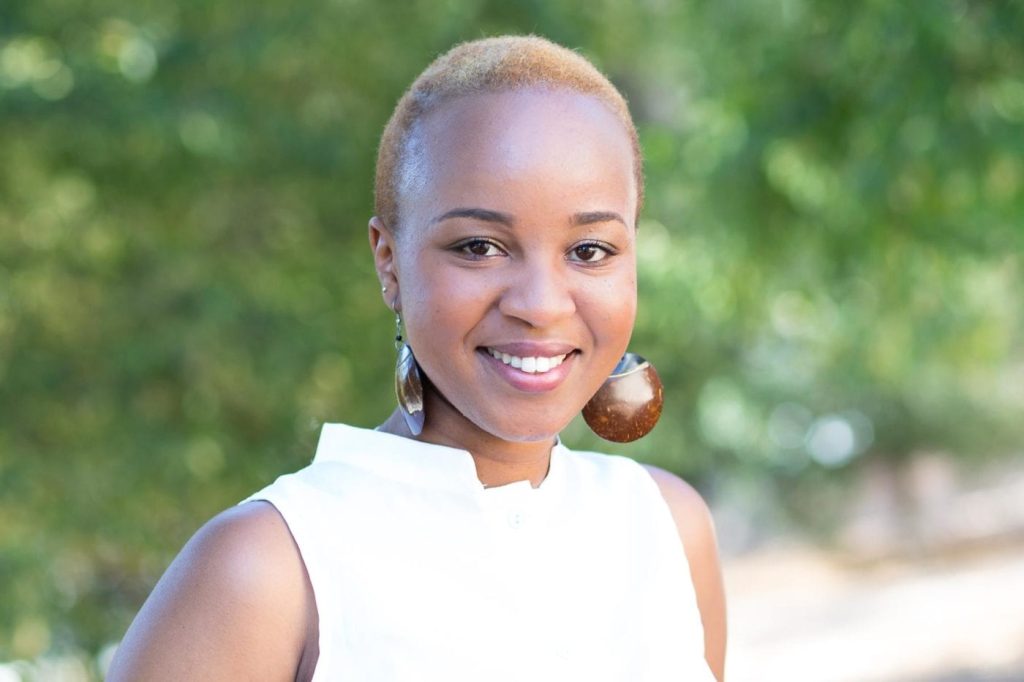
[bctt tweet=”Kagure Wamunyu: I think figuring out what it is you want to do in life, early in life, is key” username=”SheLeadsAfrica”] It’s always great to see our African sisters take on non-traditional fields such as technology and engineering. One such woman who has literally made technology her niche is Kagure Wamunyu. The 27 year old is the current head of logistics and operations at Uber Kenya. Kagure is changing the way women lead in the tech industry by following her own path and refusing to take no for an answer. She has carved her way into the industry meticulously with not one, not two, but three degrees under her belt. Kagure quickly returned to her beloved home-town, Nairobi to use her knowledge and expertise in improving the transport and urban planning industries, two things she is very passionate about. Diana Odero, our SLA contributor had a great chat with Kagure to find out what it is that keeps her motivated to do what she does and why she believes in always paying it forward. Word on the street is that you were Uber Kenya’s first full-time employee. How did you bag that role coming straight out of uni? I was recruited to join the organization during my last year as a postgraduate student through LinkedIn. I think what they really liked was the fact that I had picked a particular course and specialized in it throughout my academic career and work experience. All my research projects were transportation planning based and I mostly focused on Nairobi so I knew the topic and the area very well. Reading up on Nairobi gave me great knowledge on the industry there, which I used during my interviews with them and that resulted into me getting the job. Your road to Uber has been quite fascinating. An internship at the UN just before joining the company, a Masters degree from UC Berkeley and you also completed two degrees concurrently in college —all funded by scholarships might we add… How did you manage to study abroad for over five years and what would you advice young girls striving for the same to do? I was fortunate enough to go and study in the US with the help of Zawadi Africa Education Fund, a program that provides scholarships to bright young girls who show leadership potential. I discovered Zawadi Africa while in high school and I think my taking initiative to actually want to be part of the program got me the scholarship I needed to go for further studies. Then, I was awarded a scholarship by Meredith College where I studied Mathematics and Civil Engineering. I think figuring out what it is you want to do in life, early in life, is key in helping you achieve your goals. I knew what I wanted to be and I saw that this school in particular would allow me a chance to do a dual degree so I took the opportunity. Being in school for five years as opposed to the traditional four meant a lot of balancing and multi-tasking on my part but every minute was worth it. As for my Masters, I applied the same method, I looked for schools that had the course I wanted, looked up scholarship opportunities within those schools and applied. I was never scared or apprehensive about either application, I just saw an opportunity and went for it. There have been instances when there was public opposition from your taxi drivers about changes within the company such as drastic price cuts. How did you handle this public conflict? For me, it’s very important to believe in what I do. It’s very important to believe in the impact the work that I do has in my community, in my city and in my country. It helps that my background is in urban planning so I have a holistic view in terms of what is going on. When you believe in what you do, most of the time you have to set the misconceptions straight. When people are talking negatively about the work that you are doing or the impact the company has, more often than not, it’s always about misinformation or miscommunication. [bctt tweet=”Kagure Wamunyu: Tell things from your perspective and believe it as you say it.” username=”SheLeadsAfrica”] I handled this public conflict through telling my story, as it is very important to set the record straight, first and foremost. Tell things from your perspective and believe it as you say it. I always see opposition as an opportunity to grow, it gives me a reason to dig deeper into my work and see what the problem is and explain to them exactly what I meant by my decision. What tips do you have for those interested in joining the technology/urban planning field? For those interested in this field, and this is especially to the women; we always feel like technology is all about coding and programming which by the way, I can do neither. There are so many other things you can do in the world of technology and it’s just a matter of taking the leap. Be good at what you do now, be good at what you have chosen. Be it communications, urban planning, legal studies or engineering. Should you decide you want to be part of the technology sector, know that these companies need all these different functions to work. So if you have perfected your niche, whatever field it may be in, you will be able to find opportunities in the tech world. At the same time, find out what it is the tech companies look for, research on which direction the field is moving towards and improve and groom yourself for that role. [bctt tweet=”Kagure Wamunyu: If you have perfected your niche, you will be able to find opportunities” username=”SheLeadsAfrica”] What has been the proudest moment of your career? In May earlier this year, we announced a partnership with Sidian Bank for USD$100
Rosaline Kariuki: There will never be a better time to be an entrepreneur
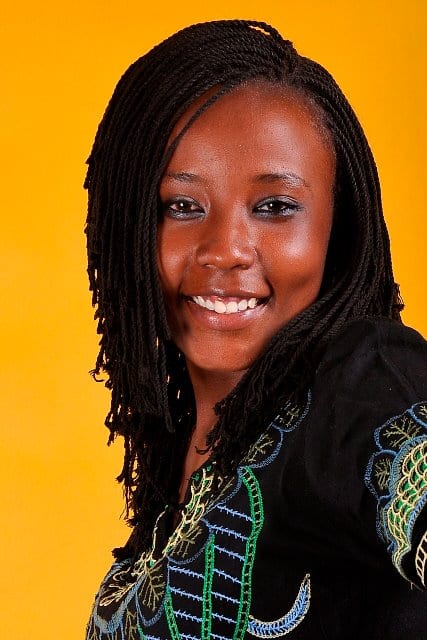
[bctt tweet=”I want to do small things for kids, but in a big way – Rosaline Kariuki” username=”SheLeadsAfrica”] I have had the pleasure of knowing Rosaline Kariuki since childhood. I’ve admired Rosaline as an amazing enterprising lady and recently imbibed some of her wisdom over froyo. Rosaline is a lawyer by profession. For a long while, her mind was fascinated by case laws, contract proceedings, ‘caveat emptors’, ‘de factos’ and ‘ipso jures’. However over time, Rosaline’s heart chose business. And as with all resilient, passionate, all-the-way-up hustlers, business chose her right back! Before we get to the crux of the business story, what was your childhood dream? Has that been the same all through or did you change some things along the way as you grew up and discovered yourself a little bit more? I always wanted to be a dancer, thanks to the influence of Channel ‘O’. Then in the usual progression of life, that evolved to a writer. However, there was no J.K. Rowling in my time who inspired me as such. After that, I moved on to the dream of owning and publishing a children’s magazine. Think of this as an enlightening kids magazine, giving them their voice where they get to write, showcase their skills, creativity and pretty much cover anyone with genuine interest in kids who would like a platform or a way to contribute. Finally, I settled on being a childrens’ lawyer. You really have a passion for children, Rosaline. Where are we now with the dream? Yes, kids! I want to do small things for them but in a big way. I figured that the ladder to a lot of ideas that I had for them would need me to climb up by sticking to the legal profession. So with my new-found energy and charm for business, I realized that I could use the proceeds to set up something for them on the line of quality medical care. The current providers are mostly overpriced, queues are long and rarely does a wonderful story spin out of these hospitals, private ones included. Don’t get me started on public hospitals. That’s brilliant! I think that good medical care has a long way to go and not just in Kenya, but in a lot of developing countries in Africa. After mulling over business ideas, what did you first settle on? I started by helping my mom set up a snack shop next to a major university in Kenya, Catholic University. I have always loved sandwiches and smoothies! If you want to take me on a date, you better get a perfect recipe for those two! [bctt tweet=”My first business was like a kindergarten teacher on day one holding me through the ABCs” username=”SheLeadsAfrica”] I was engaged there for a couple of months before getting into tenders for school suppliers. This first business taught me a lot: it was more like a kindergarten teacher on day one holding me through the ABCs. I perfected my entrepreneurial rocket launch pad, it was also a test of my courage for business and my very first baby. On to the tender business, would you share how that is coming along? So far so good, and so rewarding. My company is called Petmil General Supplies, or PMG in short. I tender to schools supplies in the range of cereals, dry food and stationery. It is bulk business and is very promising. My dad has been a major mentor especially for stationery supplies, having been involved in a similar business when I was small. My younger brother is my partner and I am looking to grow this and then strike another venture, the serial entrepreneur style. [bctt tweet=”Whatever it is that you are passionate about, stick to it long enough to make it happen” username=”SheLeadsAfrica”] Would you like to go deeper into the lessons and what other Motherland Moguls can learn from you? Oh yes! Always stick to the plan: My idea was to be a healthy snacks vendor but we found ourselves trying lunch meals. This shifted focus and by far has been my biggest lesson. Whatever it is that you are passionate about, stick to it and focus long enough to make it happen. Financial: For what you think you’ll need to start out as capital, double that. The buffer is necessary as other operating expenses or hidden expenses crop up and can be a tad overwhelming. Vision & employees: Your employees need to see your vision, understand it and buy into it. Even if not all, at least one. This keeps them on toes, gives them a direction and motivates them in times of uncertainty. Sometimes, it will be only one employee, the loyal kind. Such handle the business when you are away or have other commitments to take care of. Outsourcing: Get help or you’ll burn out. I burnt out a few months into the business because I was doing everything when I could actually outsource some help. Accounting/website design/social media…any functions that you can pay a reasonable fee to be taken care of will ease up your schedule for business development. Personal: There will never be a better time to be an entrepreneur. We are the change makers and this is the time. We are much like the American baby boomers who our kids will be talking about 20 years to come. I will die an entrepreneur. Want to see women you know featured on SLA? Tell us what amazing things women are doing in your communities here.
